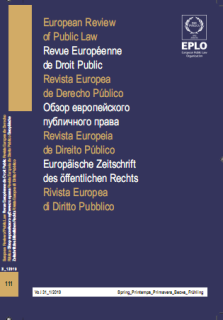
Le brexit et le budget de l’europe
Professeur de finances publiques à l’Université d’Istanbul
Brexit should be analyzed in two contexts: Static analysis and dynamic analysis. According to the static analysis, ceteris paribus, one could calculate the budgetary effects of Brexit on the two parties concerned, the European Union and the United Kingdom. However, the legal and political chaos into which the Brexit process finds itself, prevents even a calculation in a static context of the budgetary effects of Brexit not knowing whether the divorce is going to be hard or soft. The dynamic analysis is much more complicated in the sense that the medium- and long-term effects of Brexit on the parties concerned are for the moment incalculable as we still do not know how we will define a Europe without the United Kingdom and, vice versa, a United Kingdom without Europe, as the economic, political and social histories of Europe and of the United Kingdom are forged over the centuries in the same economic basin, that is, Europe.
Il faudra analyser le Brexit dans deux contextes: Analyse statique et analyse dynamique. D’après l’analyse statique, ceteris paribus, on pourrait calculer les effets budgétaires du Brexit sur les deux parties concernées, l’Union européenne et le Royaume-Uni. Quand même, le chaos juridique et politique dans lequel se trouve le processus du Brexit empêche même un calcul dans un contexte statique des effets budgétaires du Brexit ne sachant si le divorce sera dur ou soft. L’analyse dynamique est beaucoup plus compliquée dans le sens que les effets à moyen et long termes du Brexit sur les parties concernées sont pour le moment incalculables car on ne sait toujours pas comment on va définir une Europe sans le Royaume-Uni et, vice versa, un Royaume-Uni sans l’Europe, les histoires économique, politique et sociale de l’Europe et du Royaume-Uni étant forgées au fil des siècles dans un même bassin économique, à savoir, l’Europe.





















